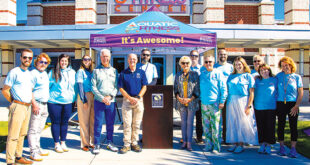By Kaye Collins
South Carolina Food Banks Call on Elected Officials to End Shutdown, Invest in Hunger Relief.
As Government Shutdown drags on, hunger is rising across the state
In the midst of the highest food insecurity levels seen in almost a decade, a government shutdown is causing significant challenges and uncertainty for tens of thousands of federal employees, active-duty military personnel, and individuals employed by federal contractors in South Carolina. Numerous diligent workers find themselves just one paycheck away from requiring assistance from their local food bank.
One in seven individuals in South Carolina, including one in five children, reside in households facing food insecurity, as per the latest statistics from the U.S. Department of Agriculture (USDA). Those who are most vulnerable to hunger include children, senior citizens, veterans, and individuals with disabilities.
If the federal government fails to secure funding for SNAP by November 1, feeding the Carolinas anticipates a significant increase in hunger throughout the state. SNAP, commonly referred to as food stamps, assists 556,000 individuals in South Carolina in obtaining sufficient food each month. Nearly 48% of households in South Carolina that receive SNAP benefits have children. Despite strong support, food banks can only offer a small portion of the nutritional aid that federal programs such as SNAP deliver. For every meal supplied by a food bank to those facing hunger, SNAP offers nine.
“Every day that passes without resolution increases the pressure on families,” stated Erinn Rowe, CEO of Harvest Hope Food Bank. “We urge our legislators to collaborate in order to bring an end to the shutdown and to invest in hunger relief initiatives that ensure South Carolina families have access to food. This is a logical measure to maintain family stability, strengthen communities, and keeps our economy progressing.”
Cuts to both federal and state food assistance programs throughout 2025 have negatively impacted food banks’ capacity to address the growing demand. The USDA and Congress have made significant reductions in funding for food banks in 2025. Currently, South Carolina’s legislature does not provide funding for food banks within the state. As the need escalates, food banks in South Carolina will persist in their commitment to their communities, but overcoming this challenge necessitates collective effort. Food banks are appealing to our communities to unite—lawmakers, businesses, faith organizations, and individuals—to guarantee that no one in South Carolina is left without the food they require.
How Individuals Can Help? Donate to your local food bank, food banks are incredibly efficient. Volunteer at your local food bank and bring a friend. Call on your elected officials to come together to end the shutdown and invest in hunger relief.
Where Individuals who need food assistance can get help to find groceries and meals near them visit Low Country Food Bank at https://lowcountryfoodbank.org. Food banks partner with hundreds of local community organizations to distribute food in every county in South Carolina. To find help near you, use your local food bank’s website (linked below) or call them directly.
South Carolina’s Food Banks: Low Country Food Bank, Food Lion Feeds Northern Regional Food Center is located at 4716 Northgate Boulevard in Myrtle Beach, Phone: (843) 448-0341 Fax: (843) 448-0481. Their hours of operation are Monday through Friday from 8 a.m. until 4 p.m.
 North Myrtle Beach Times Serving our Community and the Grand Strand for over 50 years
North Myrtle Beach Times Serving our Community and the Grand Strand for over 50 years


